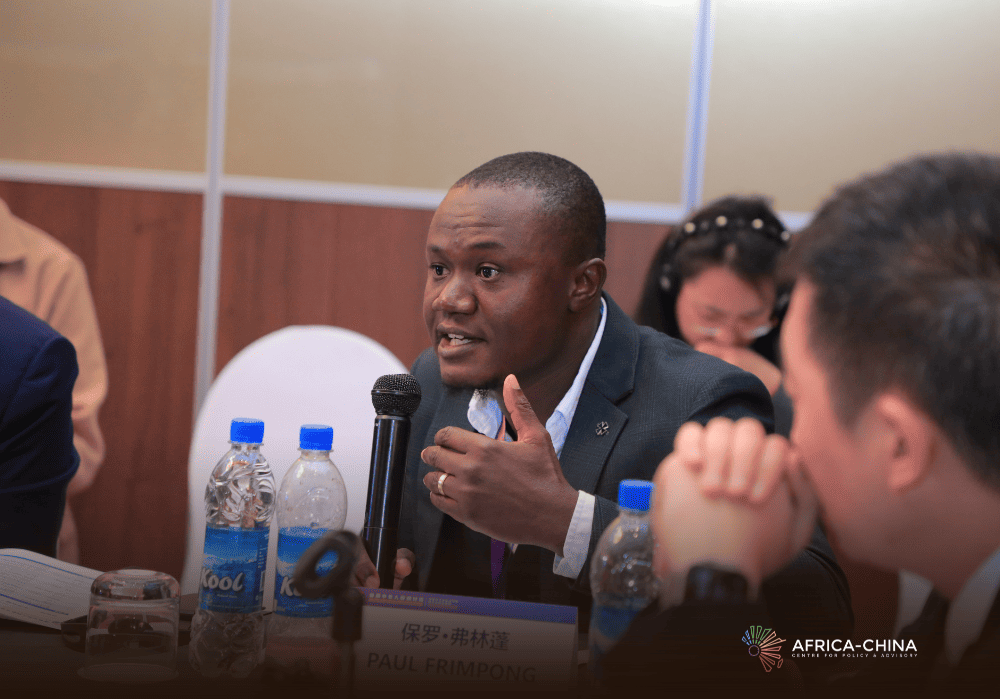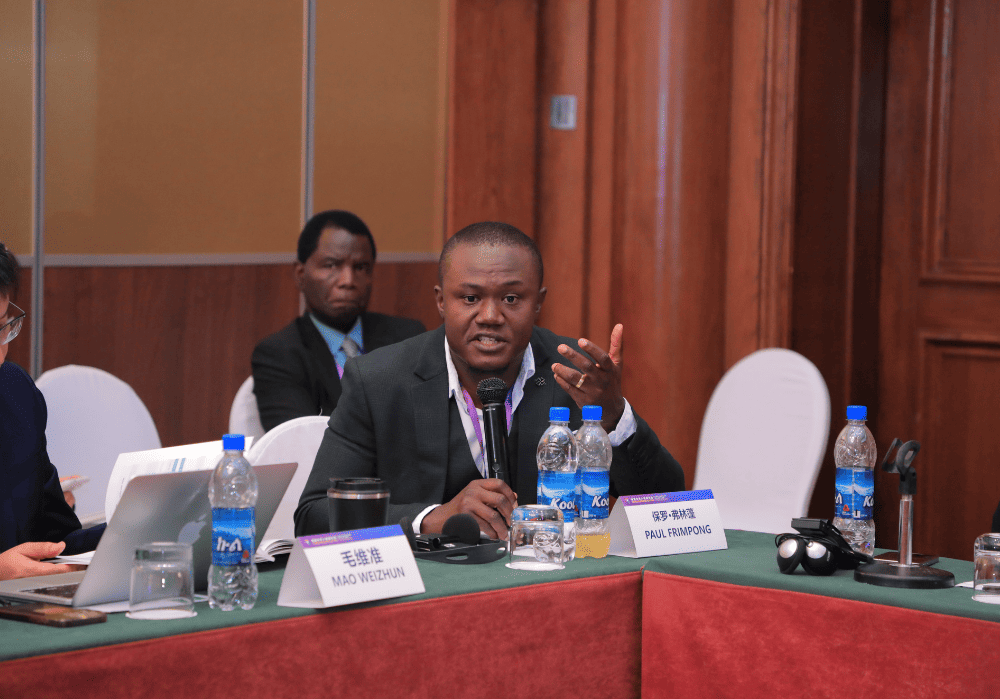
At the recently concluded First China-Africa Human Rights Forum, held in Addis Ababa, Ethiopia, the Executive Director of the Africa-China Centre for Policy and Advisory (ACCPA), Paul Frimpong, delivered a powerful and timely presentation exploring the intersection of infrastructure, human rights, and development cooperation.
His paper, titled “The BRI in Africa: A Catalyst for the Right to Development or a Missed Opportunity?”, examined whether China’s Belt and Road Initiative (BRI) is advancing the right to development across African nations—or falling short of its transformative potential.
Anchored in the 1986 UN Declaration on the Right to Development, Frimpong’s presentation highlighted how the BRI can serve as a strategic platform for inclusive, participatory, and sovereign development in Africa. Using Ghana as a case study, he detailed how key projects—such as the Tema Port Expansion, Sinohydro infrastructure-for-bauxite agreement, and rural electrification efforts—have helped to close infrastructure gaps, enhance regional connectivity, and support economic growth.

IMAGE: Paul Frimpong, Executive Director of ACCPA, presenting his paper during the sub-forum at the First China-Africa Human Rights Forum in Addis Ababa, Ethiopia.
However, he also cautioned against complacency. The paper identified several gaps in current BRI implementation, including concerns around debt sustainability, transparency, environmental risks, and limited local participation.
Frimpong argued that Africa’s agency and governance capacity must be strengthened to fully harness the BRI’s potential. He advocated for a rights-based redesign of the BRI that embraces inclusive planning, environmental safeguards, skills development, and stronger accountability mechanisms.
“The BRI can become more than an infrastructure corridor—it can be a pathway to a just, prosperous, and rights-based future for Africa,” Frimpong concluded in his address.
His intervention aligns with the broader spirit of the 2024 Dar es Salaam Consensus, which framed development as the cornerstone of human rights cooperation between China and Africa. The forum brought together policymakers, scholars, and civil society actors from across the continent to discuss how China-Africa cooperation can align with evolving human rights and development frameworks.
The ACCPA, under Frimpong’s leadership, continues to play a leading role in shaping the Africa-China development narrative, with ongoing research, advocacy, and policy engagement at national and continental levels.
Source: www.sinoafricainsider.com
